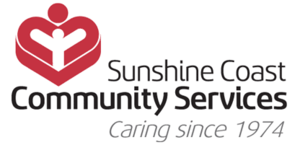Join us for an exciting day of learning with Jan Ference, BEd, M.S in Counselling, IPMHF (Infant-Parent Mental Health Fellow)
How can neuroscience help us understand the opportunity we have to help our clients make lasting changes in their lives? How can we better understand the intersection of brain development, and substance use?
When a person is exposed to chronic stress, adversity, and/or neglect, brain development is impacted in a significant way. This in turn can influence daily functioning, and the ability to develop in a typical manner. Science is teaching us that adversity has a direct correlation to both emotional and physical health that can be passed onto future generations. We are also learning that the quality and nature of the early attachment relationship is more imperative than we ever understood.
What is the stress response system and how does this impact people’s day-to-day functioning, especially decision making. How do we help people soothe their nervous system when they have never learned to do this on their own? How can we maximize the first few weeks of a baby’s life, and potentially heal the adult caregiver brain at the same time?
How does this information relate to your role? How can it help us reduce shame for our clients/patients? How can it support the families in your care to begin the healing process from a neurobiological perspective? Lastly, but most importantly, how can we find hope in our work when caring for such complex people?
*Gain knowledge and practical strategies to support vulnerable families, specific attention to the perinatal substance use population.
*Gain a deeper understanding of the underlying roots of substance use and how this helps improve our systems of care.
*A review of the neurobiology of trauma and attachment and specifically how it relates to substance use.
Jan Ference, BEd, M.S in Counselling, IPMHF (Infant-Parent Mental Health Fellow)
Jan has spent her entire career working with at-risk children and their families. She completed her Bachelor of Education at the University of Victoria and got her first teaching job in an inner-city school. She quickly realized that she wanted to know more about the social emotional well-being of the complex children she was teaching. She completed a Master’s in Counselling program at the University of Portland. About ten years ago while managing a behavior resource department for a School District, her colleague suggested she attend a three-day workshop on trauma, and that was Jan’s first exposure to Dr. Bruce Perry’s model. From that day on, she was inspired to change her practice and the systems that serve the most vulnerable children. Jan currently mentors’ clinicians from around the world, who are training with Dr. Perry. She has trained thousands of colleagues in this model with the goal of changing the lens through which we see the most vulnerable families.
In April of 2016, Jan created and led a specialized, early intervention, trauma team. This team has had inspiring outcomes working intensely with women in the perinatal period who have Opioid Use challenges. They have been able to facilitate community system change based on the rich learnings gained from the perinatal work.
In 2016, Jan graduated from the Infant-Parent Mental Health Fellowship through University of California. This fellowship has been life changing, as the knowledge and understanding of early caregiving experiences is the key to understanding all life experiences that follow. In addition, she has recently completed the Reflective Supervision Academy 2021/ 2022, through UC Davis.
Currently Jan is working for the Yukon Department of Education transforming the school system, and as of April 1st, 2025 is the Executive Director of Family Services of Greater Victoria.
Lastly, Jan is an active and passionate National Trainer for the Brazelton Touchpoints Center. She leads Team Canada and facilitates multiple trainings each year which encourages and supports system transformation.

 Give Today
Give Today  Get Involved
Get Involved  Stay Connected
Stay Connected